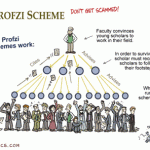
Help scientists track plant and animal cycles:
The USA-National Phenology Network (USA-NPN) -- a University of Arizona, Tucson-based group of scientists and citizens that monitors the seasonal cycles of plants and animals -- is calling for volunteers to help track the effect of climate change on the environment.
The group is launching a national program encouraging citizen volunteers to observe seasonal changes among plants and animals, like flowering, migration and egg-laying. They can then log in and record their observations online at the USA-NPN website.
"The program is designed for…
Dorothea found an intriguing survey - If it's not online... - in which physicists and astronomers say, pretty much, that 'if an article is not online then it is not worth the effort to obtain it'.
An interesting discussion (with a couple of more links added by others) ensued here.
What do you assume if a paper is not online? Do you track it down anyway? What are your criteria for choosing to do so?
Henry Gee is diversifying. If some other people did it, they would not have lost all their money to Madoff.
So, what is Henry doing?
His blog on Nature Network is now re-named - I, Editor.
The End of The Pier Show can now be found elsewhere, or to be more precise, it is now here. Subscribe, bookmark, whatever you like to do. I have a feeling that the Cromer Menagerie will have more frequent appearances there than on the old blog.
The next edition of Praxis, the blog carnival about the life in and business of science, will alight on The Lay Scientist tomorrow, March 15th!
The next edition of The Giant's Shoulders, the blog carnival of history of science, will be on March 16th on The Evilutionary Biologist.
So hurry up and send in your entries ASAP.
Fridges And Washing Machines Liberated Women, Study Suggests:
The advent of modern appliances such as washing machines and refrigerators had a profound impact on 20th Century society, according to a new Université de Montréal study. Plug-in conveniences transformed women's lives and enabled them to enter the workforce, says Professor Emanuela Cardia, from the Department of Economics.
Human-generated Sounds May Be Killing Fish:
Anthropogenic, or human generated, sounds have the potential to significantly affect the lives of aquatic animals - from the individual animal's well-being, right…
Three o'clock is always too late or too early for anything you want to do.
- Jean-Paul Sartre, 1905 - 1980
Now that the Open Lab 2008 is done and up for sale, it's time to turn our sights towards the next year.
If you read the comments on Sci's post and my post (as well as some chatter I picked up on Twitter/Facebook/FriendFeed and privately), the pick for the 2009 editor is a Big Hit! I am truly looking forward to the year of collaboration with SciCurious on the next edition of the anthology.
But, as you know, the anthology is a collaborative project of the entire science blogosphere. Thus, we need to get started! That means YOU!
First, you need to go into your blog's archives and look at your…
This is an interesting thread developing - I posted a longish comment there already if you are interested in my views.
This, of course, will involve the question of 'appropriate language', so please also re-visit this, this and this.
Related: Do you comment on your own blog?
There are 24 new articles in PLoS ONE today. As always, you should rate the articles, post notes and comments and send trackbacks when you blog about the papers. You can now also easily place articles on various social services (CiteULike, Connotea, Stumbleupon, Facebook and Digg) with just one click. Here are my own picks for the week - you go and look for your own favourites:
Regulation of Clock-Controlled Genes in Mammals:
The complexity of tissue- and day time-specific regulation of thousands of clock-controlled genes (CCGs) suggests that many regulatory mechanisms contribute to the…
The newest member of the Family is Erik Klemetti, a geologist studying volcanoes. You can check out the archives of his old blog for the taste of things to come. But first go and say Hi to Erik at his new digs, here at scienceblogs.com, at Eruptions.
From an e-mail from SPARC and The Alliance for Taxpayer Access yesterday:
FIRST U.S. PUBLIC ACCESS POLICY MADE PERMANENT
2009 Consolidated Appropriations Act ensures NIH public access policy will persist
Washington, D.C. - March 12, 2009 - President Obama yesterday signed into law the 2009 Consolidated Appropriations Act, which includes a provision making the National Institutes' of Health (NIH) Public Access Policy permanent. The NIH Revised Policy on Enhancing Public Access requires eligible NIH-funded researchers to deposit electronic copies of their peer-reviewed manuscripts into the…
Science on the Campaign Trail:
In November 2007, a group of six citizens decided to do something to elevate science and technology in the national dialogue. They created Science Debate 2008, an initiative calling for a presidential debate on science policy. They put up a Web site, and began encouraging friends and colleagues to sign a petition calling for the debate. Within weeks 38,000 scientists, engineers, and other concerned citizens had signed on. The American Association for the Advancement of Science (AAAS), the National Academies, and the Council on Competitiveness (CoC) joined as…
From SCONC:
Thursday, March 19
6pm
SCONC night at the Museum of Life and Science. Join your fellow science communicators for refreshments, socializing and a bit of brainstorming about Science in the Triangle - the museum's evolving experiment in community science journalism and scientific-community organizing.
Our host, Troy Livingston, MLS Vice President of Innovation and Learning is seeking SCONC input about ways the group can become involved in community building activities at the site and at the Museum. So get those neurons moving and bring your ideas!
There's plenty of free parking.…
The unmovable movers! Or so says Bill Hooker:
For instance: I use Open Office in preference to Word because I'm willing to put up with a short learning curve and a few inconveniences, having (as they say here in the US) drunk the Open Kool-Aid. But I'm something of an exception. Faced with a single difficulty, one single function that doesn't work exactly like it did in Word, the vast majority of researchers will throw a tantrum and give up on the new application. After all, the Department pays the Word license, so it's there to be used, so who cares about monopolies and stifling free culture…
What I Was Doing Vs. What I Did: How Verb Aspect Influences Memory And Behavior:
If you want to perform at your peak, you should carefully consider how you discuss your past actions. In a new study in Psychological Science, psychologists William Hart of the University of Florida and Dolores AlbarracaÂn from the University of Illinois at Urbana-Champaign reveal that the way a statement is phrased (and specifically, how the verbs are used), affects our memory of an event being described and may also influence our behavior.
American Adults Flunk Basic Science:
Are Americans flunking science? A…
Clocks slay time... time is dead as long as it is being clicked off by little wheels; only when the clock stops does time come to life.
- William Faulkner, 1897 - 1962
Anne-Marie writes, in Hot Mommas Make Boys:
A study published in the latest edition of the Journal of Mammalogy reports the results of a 30 year study on a population of northern elephant seals (Mirounga angustirostris), which shows that the male:female pup ratio is significantly higher in years with warmer sea surface temperature and weaker atmospheric pressure differentials.
What is the mechanism behind this? Unlike reptiles, which actually have their biological sex determined by temperature, the sex of mammalian embryos is entirely dependent on their chromosomes. This is where the…


